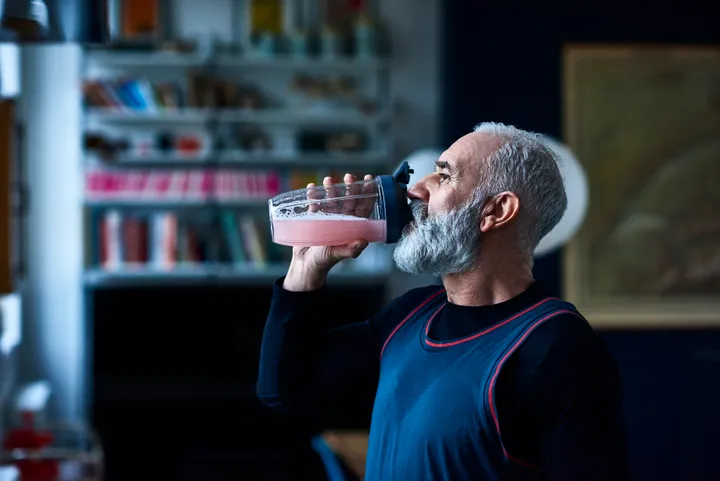If you’re out for a run or attending a 5 a.m. spin class before the sun comes up, it can be difficult to determine whether breakfast is best before or after your early morning workout (or both). With all this said about the importance of pre- and post-workout meals, it feels like a lot of food and calculations are crammed into a small window.
Nutritionists say there’s really no clear answer for everyone, but there are some guidelines that can help you make the right decision.
This is a bit of personalized advice. While not everyone needs to eat something before a workout, for some people it may be beneficial to eat a small carbohydrate-rich snack.
Some people may prefer to eat smaller meals before and after working out.
While how you adjust your diet around exercise is a personal choice, nutritionists and fitness experts explain that there are several factors to consider when deciding when to eat. Additionally, certain foods are best for pre- and post-workout meals.
The benefits of eating before a morning workout
You do need energy to exercise.Research shows that eating or drinking carbohydrates before exercise can improve exercise performance and may allow you to exercise longer or at a higher intensity.
The Academy of Nutrition and Dietetics recommends eating carbs and protein one to four hours before exercising — but that’s not always possible if you’re working out at 5 a.m.
Some people store enough energy to sustain an early workout from eating the night before. It all comes down to intuitive eating and intuitive exercise, and being in tune with your body, there is no one-size-fits-all solution.
How to test your tolerance for a pre-workout breakfast
People have different needs, and those needs change every day. If you’re new to exercising, you may want to eat something beforehand. If you’re an experienced exerciser, probably not. Some people may have sensitive stomachs and risk illness if they eat before exercising.
The most important thing is to pay attention to how you feel during your workout. Do you feel sick? Dizziness? Do you feel like you have enough energy to exercise at the intensity you like?
If you eat before exercise and feel an upset stomach, try skipping a pre-workout meal. If you don’t eat and feel dizzy or have trouble completing your fitness routine, try eating something next time.
It’s important to experiment and determine which eating pattern works best for your body.
Several other factors may also affect when to eat. For example, nutrition and fitness goals, medical history, length and intensity of physical activity, and time of last meal.
If you don’t like eating before a workout and it doesn’t affect your performance, then certainly don’t force yourself to eat.
Pre-workout hydration matters more than eating
Choosing to eat before your morning workout may be a personal choice, but everyone should drink water first.
Studies show that drinking water before breakfast helps people reduce their overall calorie intake throughout the day. Research also shows that hydration plays a key role in fitness performance, injury prevention, and recovery.
When you’re dehydrated, your energy levels drop and your workouts suffer. It is recommended to drink approximately 16 ounces of water one hour before exercise.
What to eat before you work out
If you choose to eat in the morning before exercising, it’s best to avoid foods high in fat and protein, as they take longer to digest. And don’t eat too much.
The goal is to avoid stomach pain and minimize nausea.
Generally speaking, you want to eat foods that contain carbohydrates, such as dry cereal, dried fruit, peanut butter and fruit, or oatmeal with milk and fruit.
You should always have a post-workout meal
Whether you eat before exercise or not, your post-exercise meal is crucial. It is recommended to consume carbohydrates and protein within two hours of exercise.
Immediately after a workout, your body begins to rebuild glycogen stores and regrow muscle protein. Speeding up these processes immediately after a workout can help your body complete the process faster.
Choose unprocessed carbohydrates and proteins. Think: whole wheat bread, peanut butter with a banana, fruit and yogurt, a turkey sandwich with veggies on whole wheat bread, or a recovery smoothie.
This maximizes protein and glycogen synthesis, stimulates metabolism, and most importantly, enhances recovery.
Even if you don’t want to gain a lot of muscle, you still need to eat protein. It provides essential amino acids that your body cannot provide on its own.
According to a previous report published by The Huffington Post, a less active but generally healthy person should consume 0.8 to 1 gram of protein per kilogram of body weight per day (for a 150-pound person, this is approximately 68 grams of protein), a super active person needs about 1.2 to 1.7 grams of protein per kilogram per day (for a 150-pound person, 82 to 116 grams of protein).




